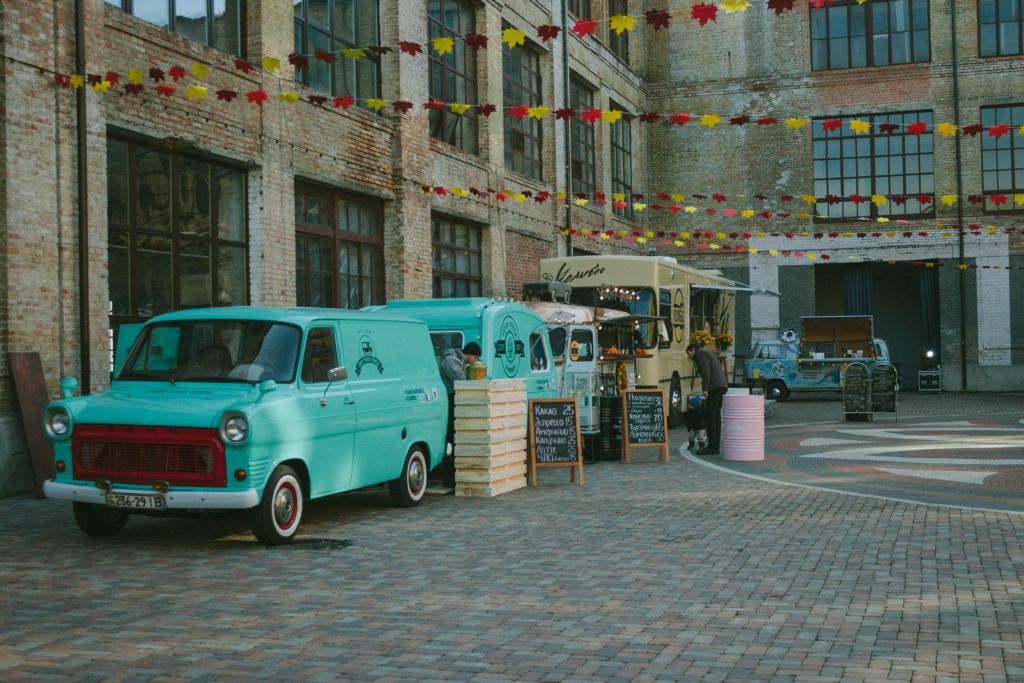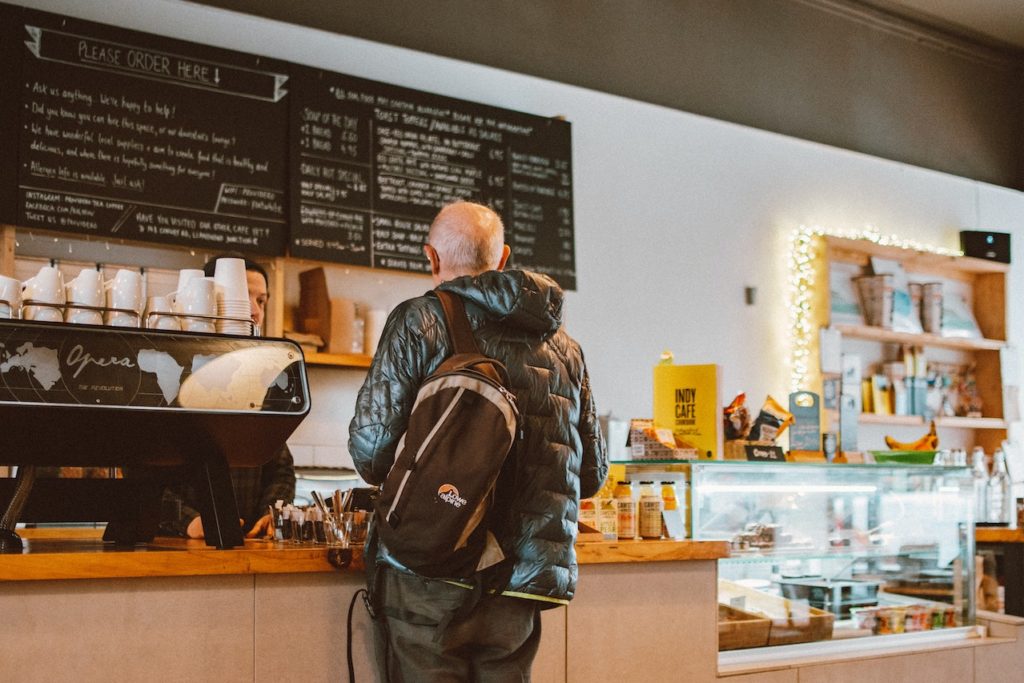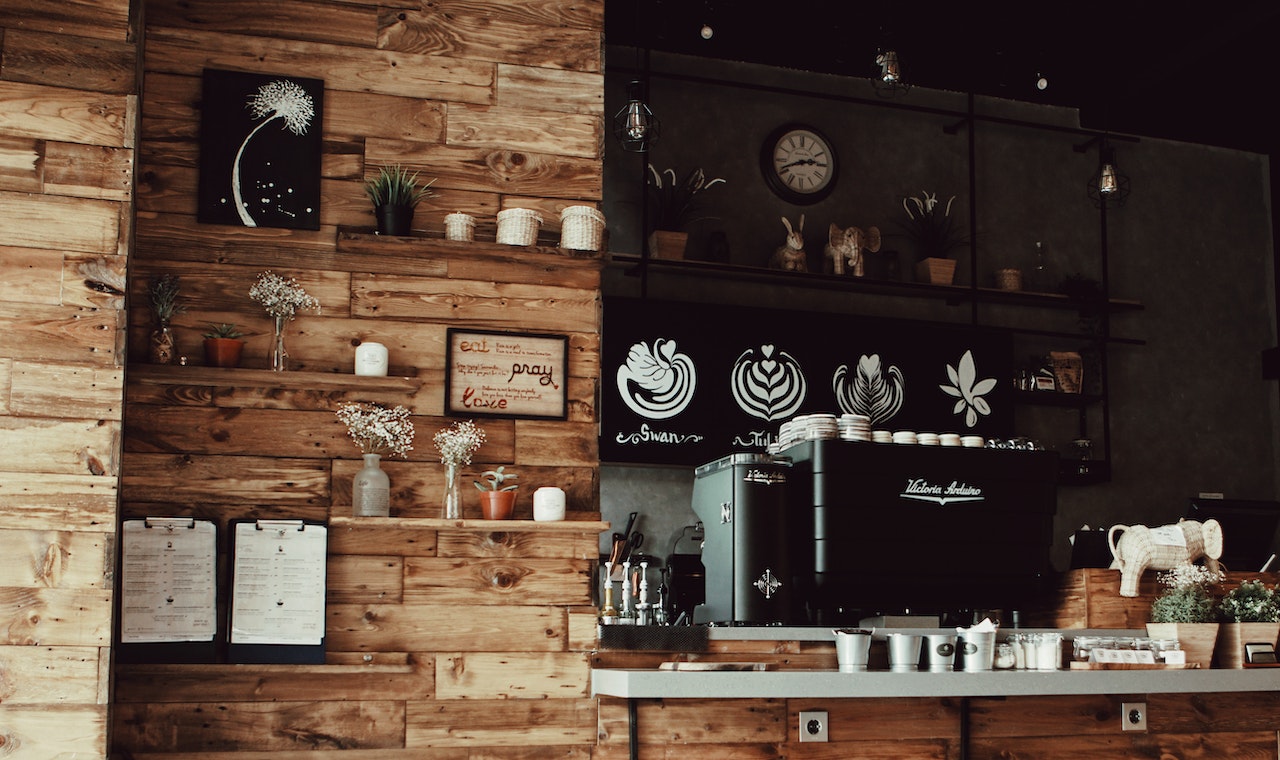Coffee shop businesses are some of the easiest companies to get off the ground. This is a business that can be operated like a food truck, placed in a brick-and-mortar location, or operated from a small kiosk building in a parking lot. This means that you will have a lot of flexibility about where you place your business and will enjoy low startup costs as well.
If you have never started a business, you might not be sure which steps you need to take to start a coffee shop business. Coffee shops are food-handling businesses, so you will need to make sure that you are complying with proper food-handling certification and training and that you do not forget to ensure that your employees are licensed to work in the food industry.
Knowing about the various requirements to get your business open and turning a profit in 2023 can help you to take the leap and open the coffee shop you’ve always wanted to own.

How Profitable is a Coffee Shop Business?
Does everyone know that giants in the industry like Starbucks and Dutch Bros make great money, but what about the coffee shop owners who have just one stand or shop? The coffee-related economic activity comprises about 1.6% of the US gross domestic product each year, and coffee shop owners make an average of $600,000-$160,000 annually.
Obviously, your shop will not start out making this much money, but you can expect that with good management, your store or location will turn a tidy profit for you each year.
The other benefit to coffee shop ownership, if you are looking to expand your income, is that you can easily open more stores if you want to. The low startup costs and the simplicity of launching these kinds of businesses make it simple to own more than one store if you want to.
The money that your first shop makes will help you to invest in new opportunities with ease and exponentially increase your income.

How Long Does it Take for a Coffee Shop Business to Turn a Profit?
Many coffee shops will become profitable within a few years of opening their doors but might become solvent even sooner if you already have other stores open in the area. The costs of brick-and-mortar locations or large shops can outpace the profits for the first few years, but a small stand or little coffee shop truck might turn a profit in just about a year.
Make sure that you make a full and accurate projection about the costs of machines, property rent, licenses and fees, and operating costs before you open your store. This will tell you how long it should take before you make profits on the location. Breaking even is always the first goal, which happens right before the shop starts to make income for you.
Be sure that you consider business loans or family and friend loans when you are considering your profitability as well. You will need to pay these kinds of loans off before your shop becomes profitable. These considerations add up if you are not paying attention to them, so make sure that your business plan looks at the time needed to establish your business before it becomes profitable.

How Much Investment is Required for a Small Coffee Shop Business?
The cost of licensing, fees for the use of a location, rent, and other considerations can vary widely based on your state of operation or the city or county that you are going to be opening your shop in. These parts of your startup costs will need to be itemized and carefully added up so that you can add them to your overall cost of opening a coffee shop.
The more specific that you can be about the costs related to your local area, the more accurate your predictions will be for when your shop will become profitable.
A good ballpark for the original investment to start a coffee shop that is not in a brick-and-mortar location is about $16,000- $25,000. Brick-and-mortar startup costs will be about $25,000-$300,000.
There are many variables related to location and you might also run into differences in startup costs related to purchasing or renting equipment and some other details of this nature.
You can see that the brick-and-mortar option is significantly more expensive, with the top end of the range being for those who decide to build their own location from scratch rather than renting a spot in a mall or some other already-established location.
There are pros and cons to both models, but many people pick the option of a coffee kiosk or coffee food truck due to the steep costs associated with starting a brick-and-mortar location.

What Are the Steps to Open a Coffee Shop?
These are the steps that you need to take when you are planning your coffee shop business and getting ready to open. If you don’t follow these steps, you might run into issues that could have been avoided and which can be critical problems that might cause your business to fail.
1. A Business Plan
The first thing that you must do, and you cannot skip this step even if it is tempting, is to make a thorough and complete business plan. This is the only way to be sure that you are aware of all of the costs that you will incur as you open your business, and it will make it possible to get financing if you need it.
You will likely also need to provide a copy of your business plan to the state when you apply for your business license and your business name.
Having a business plan in place gives you a roadmap for success which is much more effective than just winging it. Most businesses that do not get off the ground do not have a thorough business plan backing them. Part of the business plan is a market assessment, which is key to selecting the right location for your shop as well.
You may want to open a shop in a specific location, but if there is too much competition in the area and a lack of clients to sell products to, your shop will fail no matter what else you do right.

2. Business Formation
You will need to provide all of the necessary documentation to the state that you plan to operate in. This will allow you to apply for a license for your business. You will also need to register for the kind of business that best suits your needs.
You might choose to open an LLC or a corporation, but you do need to know which kind of business you are opening at the time of your application. There are benefits to each business type, and you might need to do some research to see which kind of business is right for your planned business organization.
Many coffee companies are organized as LLC businesses, but you might have reasons to create your business as a corporation instead. You can always secure the support of a lawyer for this stage of the creation of your business, as they will know more about why you might choose one business type over another.
The lawyer will be an added cost, but they can help you to get the right business formation process completed efficiently.
You will also need to apply for an EIN so that you can pay your employees and so that your taxes can be paid correctly each year. This is a relatively simple process, but you will need to have the rest of your business details sorted out before you should create your EIN.
This might be a required step for applying for a business license in your state, and you could be expected to provide your EIN before you can get your business license.
3. Verify Location Details
If you are building a brick-and-mortar location or you have picked out a location to rent, you will need to be able to provide the information about the location in your business plan when you apply for your business license.
You will need to state the expected customer volume and any costs for renovations or changes to the location, and you might also be expected to provide information about rent and licensing costs to use the facility.
When you are looking at a coffee kiosk or a coffee truck, you will not have to explain anything but the expected volume of customers you hope to see at peak times, and you might need to verify that you can get the right licenses and permits to operate your location in a parking lot or a food truck conglomerate location.
Traveling shops that show up to events and parties will need different licensing than shops or trucks which operate in a single location all the time. Making sure that you have the location details sorted out is critical so that you do not run into issues that might prevent you from opening your store.
Permits and other kinds of location-based issues can often delay the opening date of a coffee shop or stand for far longer than might be ideal. Making sure to have this part of the business plan sorted out early on will ensure that your opening is not delayed.

4. Equipment Purchase or Rent
This is by far one of the most expensive parts of the coffee shop startup process. There are various ways that you can source equipment to make the drinks and food items that you will be selling and you will want to look into all of these options for your location.
You can sometimes get your machines used or from wholesalers for a reduced price, but many people end up renting their machines or buying them on credit and needing to pay them off.
The loan that you might get for your business will usually be required to help cover the costs of the machinery and supplies that you need to get your business off the ground. This is one of the places where many people do not budget with enough wiggle room, and you would be wise to overestimate your costs here to a certain degree.
5. Buy Supplies
Coffee prices and the price of milk and flavorings can vary widely throughout the year. Things like natural disasters and supply chain issues can also lead to increased costs that you were not expecting. You should plan to spend about $7.50 a pound for roasted coffee, but this can vary if you are trying to offer specialty coffee brands or specific kinds of coffee products.
You will also need to be aware that milk can cost about $3 a gallon and that things like water will also cost you money since you will need to get filtered water in jugs. Drip coffee makers and filters can add about $1,500 to your setup costs as well.
Make sure that you create an extensive and exhaustive list of the supplies that you need and spend a few weeks tracking down the best deals for your various supplies. You will also want to check that you can get these supplies long-term from the company that you have chosen to work with. Working on a catch-as-you-can basis is not acceptable for a coffee business.
You need to be sure that you can get the necessary supplies to make drinks on a regular basis before you run out of essentials. Closing your doors for even a few days due to a lack of coffee, milk, or other essentials can be very hard for a business to recover from.

6. Pick a Point-of-Sale System
This is one of the biggest costs for a coffee business. The software and the devices that you use to allow customers to pay you and which can track your profits and spending is a key aspect of your business. You cannot afford to make mistakes in this part of your business plan, and you will need to make sure that you are prepared to pay for the right POS so that your business does not stumble early on.
Be prepared to have tablets for customers to use to pay, and be sure that you have a card swiping system as well as a cash management system in place.
Trying to operate a cash-only business is not really feasible these days since most people do not carry cash with them anymore. You might be able to make this work with a mobile coffee location, but you really will be missing out on lots of sales if you cannot take cards.
Even if you start out with a simple Square payment arrangement on your phone, you need to be able to take credit cards and bank cards so that you can make the maximum profit from the first day that your shop is open.
7. Hiring Staff
This is a costly part of your startup process and one that really matters. The staff you hire is the face of your business and can make or break your business reputation. You will probably start out working in your shop yourself.
But only in rare cases can you run a whole coffee shop location single-handedly. You should not plan to do this and should be prepared to budget for at least one employee when you open your store.
The number of employees that are necessary to manage peak times efficiently should be part of your business plan. You will need to have a set number of baristas and operational staff in mind to ensure that your business can handle busy times without issue. Also, consider the lawyer you have been working with and any contractors who have been making changes to your location as part of the staff you are hiring.

8. Licenses, Permits, and insurance
These costs cannot be avoided and they are required to get your shop off the ground and running. You should be prepared to pay about $50 to register a business. You will find that business license costs can vary from $25 to many thousands of dollars a year. Annual renewal fees can be quite steep as well, depending on the type of shop you have opened.
Food services permits and licenses for the business and the staff are secured through the local health department or the city. These can range quite a bit in cost as well, from $100 -$1,000 a year.
You can check into the various kinds of food that you are allowed to handle with the license that you have in mind too. You might need to pay extra to be able to have specific food types on-site at your store.
Sign permits, music licensing permits, and building permits are also usually required for coffee shop locations. Make sure that you look at the details regarding these costs for your business location and the price of each of these permits. These can really add up, and sometimes business owners are shocked at the cost of these added essentials.
Liability insurance and worker’s compensation insurance are required for coffee shop locations as well. These can be anywhere from $500-$2,000 a year. You might want to talk to your lawyer about the right way to pick a policy so that you are not underinsured in the case that something happens in your shop.
You do not want to be left with costs that you cannot afford if someone is hurt on your property, if the business burns down, or if some other kind of disaster occurs.
The insurance that you pay for each year is usually a requirement by the state in order to keep your business’ doors open. You might resent paying the annual premiums when they come due, but if you ever need to get the help of your insurance company, you will be grateful that you paid the premiums.
9. Plan for Tax Payments
Federal and state taxes will have to be paid by your business each year, and you will need to be sure that you are paying the right amounts to both entities. It can be tricky to work out what you owe for the first few years that your business is operating, particularly if you are not turning a profit.
You will want to consider working with a tax expert for this part of the process of starting your business. You will ultimately save money when you do your taxes right the first time, and the fee for the help of your accountant will be well worth it when tax time comes around.
Taxes are just part of the process of owning a business, and the better prepared you are for this part of the ownership process, the easier it will be to take care of the necessary work at tax time.

Operating a Coffee Shop Can be Very Profitable
If you use this guide to start your coffee shop business, you should have no trouble creating a business that will end up being very profitable for you. Coffee shop businesses are easy to operate and can scale readily, and do not take that long to get up and running.
While it might seem daunting to start your first business, once you have opened one shop, you will be ready to take on the world! Coffee shop locations can be made to fit any niche and need, and they can also fit in well in all kinds of locations.
From food truck operations to kiosks in parking lots, or brick-and-mortar stores, coffee shops can be made to be as big or as small as you wish. If you have ever wanted to own your own business, a coffee shop can be a great way to get started in business ownership!

